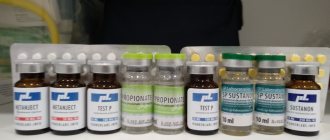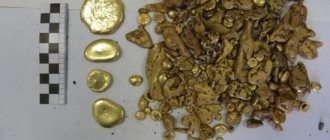Article 234 of the Criminal Code of the Russian Federation provides for liability for the illegal production, processing, acquisition, storage, transportation or shipment for the purpose of sale, as well as the illegal sale of potent or toxic substances that are not narcotic drugs or psychotropic substances, or equipment for their production or processing.
Despite the fact that this norm of the criminal law excludes liability under it for illegal trafficking in narcotic or psychotropic substances (liability for trafficking in narcotic and psychotropic drugs is provided for by other norms of the Criminal Code of the Russian Federation), liability under Art. 234 of the Criminal Code of the Russian Federation is subject to drug addicts and, oddly enough, athletes.
Decree of the Government of the Russian Federation dated December 29, 2007 N 964 approved a list of potent and toxic substances for the purposes of Article 234 and other articles of the Criminal Code of the Russian Federation, as well as large quantities of potent substances for the purposes of Article 234 of the Criminal Code of the Russian Federation. This list contains a number of psychotropic potent substances used by drug addicts to obtain a narcotic effect, as well as androgenic anabolic steroids used by athletes to achieve athletic performance and build muscle mass.
An important feature of Art.
234 of the Criminal Code of the Russian Federation Illegal trafficking of potent substances is that criminal liability for it arises only for sales or circulation (shipment, transportation, acquisition, storage) for the purpose of sales. Thus, the direct sale must be proven, and if no purchase was carried out during the operational investigation, then the intent to sell, which may be evidenced by the large size of the prohibited substances, packaging of the substance, materials and equipment for packaging, etc. Thus, criminal liability under Art. 234 of the Criminal Code of the Russian Federation in case of acquisition or storage of any substance contained in the list of prohibited substances of Resolution No. 964 of December 29, 2017, does not occur. CRIMINAL LAWYER call now: ☎ 8 (495) 532-75-40
Protection under Art. 234 of the Criminal Code of the Russian Federation Illicit trafficking in potent substances
If you or your relative are detained for illegal trafficking of anabolic steroids or potent psychotropic substances, even if there was no sale, in any case you should take advantage of the protection under Art. 234 of the Criminal Code of the Russian Federation, since law enforcement officials will try to prove the sale or its intent. They may begin to persuade you, intimidate you, mislead you, and say that if you confess, it will make your fate easier. Without the participation of a lawyer in the absence of protection under Art. 234 of the Criminal Code of the Russian Federation, you risk becoming an easy prey. Moreover, at the stage before the initiation of a criminal case, when conducting an inspection in accordance with Art. Art. 144 – 145 of the Code of Criminal Procedure of the Russian Federation does not provide for the mandatory participation of a defense attorney. Therefore, as soon as there is contact with law enforcement agencies related to psychotropic substances or anabolic steroids, seek protection under Art. 234 of the Criminal Code of the Russian Federation to a lawyer.
Second commentary to Art. 234 of the Criminal Code of the Russian Federation
1. The immediate object of this crime, as well as crimes related to illicit trafficking in narcotic drugs or psychotropic substances, is public health.
2. The subject of the crime is:
a) potent substances;
b) toxic substances;
c) equipment for the production or processing of potent or toxic substances.
3. Potent substances are understood as substances that are not narcotic, but have an intoxicating effect on a person and can cause serious harm to his health.
4. Toxic substances include substances that, when consumed orally, intravenously, subcutaneously or intramuscularly, have a severe toxic effect on a person, capable of causing death or serious harm to health.
5. Lists of potent and toxic substances in accordance with the note to this article are approved by the Government of the Russian Federation (see Decree of the Government of the Russian Federation of December 29, 2007 No. 964 “On approval of lists of potent and toxic substances for the purposes of Article 234 and other articles of the Criminal Code of the Russian Federation , as well as large amounts of potent substances for the purposes of Article 234 of the Criminal Code of the Russian Federation” (as amended on September 26, 2016).
6. Equipment for the manufacture or processing of potent or toxic substances means either industrial or home-made or adapted equipment designed to produce chemical reactions or control physical processes to obtain finished forms of potent or toxic substances.
7. The commented article essentially provides for two independent crimes, encroaching on the same object and having the same subject. Parts 1–3 establish liability for acts related to the illegal trafficking of potent and toxic substances, and part 4 deals with violation of the rules of their legal trafficking.
8. The objective side is expressed in actions consisting of the illegal production, processing, acquisition, storage, transportation or forwarding or sale of potent or toxic substances or equipment for their production or processing. For the content of the listed actions, see the comments to Art. 228.2 CC.
9. The crime is considered completed from the moment of commission of any of the listed illegal actions.
10. The subjective side is characterized by direct intent. In case of illegal production, processing, acquisition, storage, transportation or shipment, a mandatory sign of the subjective side is the special purpose of selling potent or toxic substances or equipment for their production or processing.
11. Responsibility for this crime begins at the age of 16.
12. The qualified type of crime in question (Part 2) occurs when a crime is committed by a group of persons by prior conspiracy (see Part 2 of Article 35 of the Criminal Code).
13. In part 3 of Art. 234 of the Criminal Code provides for two particularly qualifying criteria - the commission of a crime: a) by an organized group (see Part 3 of Article 35); b) in relation to potent substances in large quantities (it is determined by the above-mentioned Decree of the Government of the Russian Federation).
14. Part 4 provides for liability for violation of established
rules for the legal circulation of potent or toxic substances.
15. The objective side of this crime is characterized by actions or inactions that violate the established rules for the production, acquisition, storage, accounting, release, transportation or transfer of potent or toxic substances.
16. A mandatory sign of the objective side is socially dangerous consequences in the form of theft of potent or toxic substances or other significant harm. From the moment they occur, the act is recognized as a completed crime.
17. Other significant harm should be understood as illness of at least one person, pollution of the environment with toxic substances, suspension of the production process for a long period, the occurrence of a fire, etc.
18. The subjective side of violation of these rules is characterized only by negligence in the form of frivolity or negligence.
19. The subject of this crime can only be a person who has reached the age of 16 years, who is entrusted with the obligation to comply with established rules in the production, acquisition, storage, accounting, release, transportation or shipment of potent or toxic substances.
Lawyer under Art. 234 of the Criminal Code of the Russian Federation Illegal trafficking of potent or toxic substances for sales purposes
Lawyer under Art. 234 of the Criminal Code of the Russian Federation will provide a full range of services for the protection of illegal trafficking in potent substances. All features of the composition of Art. 234 of the Criminal Code of the Russian Federation are taken into account by the lawyer during the defense and are used effectively. In specific situations, the tactics of the defense can be constructed in different ways, it all depends on whether the sale or intent to sell is proven - it is the proof of this circumstance that determines the presence of the elements of Art. 234 of the Criminal Code of the Russian Federation. In some cases, the defense is aimed at minimizing liability, and in other cases the tactics involve avoiding more serious charges. Lawyer under Art. 234 of the Criminal Code of the Russian Federation will help you build the right defense tactics, taking into account all the important circumstances. If you are facing criminal prosecution under Art. 234 of the Criminal Code of the Russian Federation, call a criminal lawyer at the phone number listed on the website.
Commentary to Art. 234 Criminal Code
1. The subject of the crime is: a) potent substances; b) toxic substances; c) equipment for the manufacture or processing of these substances. The list and large size of these substances are contained in Decree of the Government of the Russian Federation of December 29, 2007 N 964.
2. The objective side of the crime is characterized by the commission of one of the actions listed in the law. The corpus delicti is formal.
3. The crime is committed with direct intent. A mandatory feature when performing these actions is the presence of a sales goal.
4. On the concept of theft of objects of this crime, see the commentary to Art. 229. On the concept of other significant harm, see paragraph 34 of the Resolution of the Plenum of the Supreme Court of the Russian Federation of June 15, 2006 No. 14.
Commentary on Article 234 of the Criminal Code of the Russian Federation
1. The commented article provides for two independent crimes, the main elements of which are described in parts 1 and 4. Parts 2 and 3 contain qualified crimes provided for in part 1 of this article.
2. The object of the criminal attack is social relations in the sphere of circulation of potent and toxic substances, ensuring the safety of public health.
3. The objects of infringement are potent and toxic substances that are not narcotic drugs or psychotropic substances, as well as equipment for their production or processing.
3.1. Potent and toxic substances are understood as both medicinal and other synthetic or natural substances not included in Lists I, II and III of the List of narcotic drugs, psychotropic substances and their precursors subject to control in the Russian Federation, and included in the lists of potent, toxic substances and substances of Tables I and II of the UN Convention against Illicit Traffic in Narcotic Drugs and Psychotropic Substances (1988) <1>, in the Lists of potent and toxic substances issued by the Standing Committee on Drug Control under the Ministry of Health of Russia (currently valid protocol dated 13.04 .2005 N 2/98-05 <2>). In particular, potent substances include clonidine, ephedrine, solutan, potassium permanganate, theophedrine, phenobarbital, chloroform, chloroethyl, medicinal ether, etc. Toxic substances include acetic anhydride, acetone, purified bee venom, methyl alcohol, sublimate, phenol , potassium cyanide, phenylacetic acid, etc. ——————————— <1> Sat. international treaties of the USSR and the Russian Federation. Vol. XLVII. M., 1994. S. 133 - 157.
<2> New drugs. 2006. Vol. 5.
To determine whether a substance seized from illicit trafficking is classified as potent or poisonous, an examination is necessary.
3.2. For the concept of equipment for the manufacture or processing of potent or toxic substances, see the commentary. to Art. 228.2.
4. The objective side of the crime in Part 1 is expressed by alternative actions, the commission of any of which is a sufficient basis for the criminal offense.
5. For the concept of illegal manufacturing, processing, acquisition, storage, transportation, forwarding and marketing, see the commentary. to Art. 228 and 228.1.
6. The general subject of a criminal offense is a sane individual who has reached the age of 16 years.
7. The subjective side of the crime is characterized by guilt in the form of intent, direct, as well as the obligatory presence of the purpose of selling potent or toxic substances or equipment for their production or processing (see commentary to Article 228.1).
8. Parts 2 and 3 comments. The articles are devoted to the description of qualified and especially qualified elements of crime.
8.1. On the concept of a group of persons by prior conspiracy, an organized group, see respectively in the commentary. to part 2, 3 art. 35, and also in the comments. to Art. 228.1; For the concept of large size of potent substances, see the recommendations of the Standing Committee on Narcotics Control. This qualifying attribute does not apply to toxic substances.
9. An optional object of the criminal offense provided for in Part 4 of the commentary. articles may include human health safety, property, environmental safety, etc.
10. The subject of the offense (Part 4) are only such potent or toxic substances that are not precursors of narcotic drugs or psychotropic substances (substances used for the manufacture of the latter) and are not included in List IV of the List of narcotic drugs, psychotropic substances and their precursors, subject to control in the Russian Federation. Violation of special rules for the circulation of potent or toxic substances that are precursors to drugs or psychotropic substances (acetic anhydride, acetone, potassium permanganate, ephedrine, phenylacetic acid, etc.) constitutes a crime under Part 1 of Art. 228.2.
Not subject to comment. equipment for the manufacture or processing of potent or toxic substances constitutes a crime. However, if such equipment is simultaneously used for the manufacture of drugs or psychotropic substances, then violation of the relevant rules for its circulation is qualified under Part 1 of Art. 228.2.
11. The objective side of the crime provided for in Part 4 of the comment. article includes: a) violation of certain rules for the circulation of potent or toxic substances; b) consequences in the form of theft of the specified substance or causing other significant harm; c) a causal relationship between the violation of the rules and the resulting consequences.
11.1. For the concept of breaking the rules, see the commentary. to Art. 228.2. The rules for the circulation of potent or toxic substances specified in the article can be of both industrial and household nature (keep away from children, store sealed, away from sources of fire or at a certain temperature, etc.).
A sign of an objective party is only a violation of the rules of production, acquisition, storage, accounting, release, transportation or shipment of potent or toxic substances. Violation of other rules for the circulation of potent or toxic substances (import, export, use, disposal, etc.) of the comment. does not constitute a crime and, depending on the consequences that occur, can be classified as a crime against life or health, an environmental crime, etc.
11.2. For the concept of theft, see the commentary. to paragraph 1 note. to Art. 158. Only the completed theft of potent or toxic substances, including those that are insignificant from the point of view of ownership relations for these substances, should be considered a consequence of a crime.
11.3. Causing other significant harm can be expressed in human illness, pollution of the natural environment with toxic substances, long-term suspension of the production process, fire, etc.
12. In the event of the death of a person due to negligence as a result of violation of the specified rules for the circulation of potent or toxic substances, the act is classified as a set of crimes provided for in Part 4 of Art. 234 and Art. 109. If serious harm to human health is caused, then according to the Resolution of the Plenum of the Armed Forces of the Russian Federation dated June 15, 2006 N 14, the deed must also be qualified according to the totality of Part 4 of Art. 234 and the corresponding part of Art. 118.
13. Establishing a causal relationship involves finding out that violation of special rules for the circulation of potent or toxic substances was the necessary and main reason for their theft or the occurrence of other significant harm.
14. The crime is considered completed (as set forth in Part 4) at the moment the consequences specified in the disposition of the article occur.
15. The general subject of a criminal offense is a sane individual who has reached the age of 16 years. This may be not only a person obliged to comply with the relevant rules due to the work performed or position held, but also any other citizen who is subject to household rules for handling potent or toxic substances.
16. The subjective side of the crime (Part 4) is characterized by a careless form of guilt in the form of a person’s frivolous or careless attitude towards theft or causing other significant harm.
At the same time, guilt in this crime is mixed (not to be confused with two forms of guilt) in the sense that the violation of certain rules for the circulation of potent or toxic substances in itself can be an administrative or disciplinary offense that is committed guilty (intentionally or through negligence). In this case, qualification on the subjective side consists of two stages: a) establishing an intentional or careless violation of the relevant rules; b) establishment of a careless attitude towards the occurrence of the consequences specified in the article. The crime is excluded if the theft of potent or toxic substances or other significant harm occurred as a result of an innocent violation of special rules.
16.1. If the subject, violating the rules for the circulation of potent or toxic substances, treated the named consequences with direct or indirect intent, then, depending on the circumstances, the act is qualified as aiding theft, a crime against life or health, etc.
17. Acts provided for in parts 1 and 2 of the comment. Articles refer to crimes of medium gravity, part 3 - serious, and part 4 - of minor gravity.






